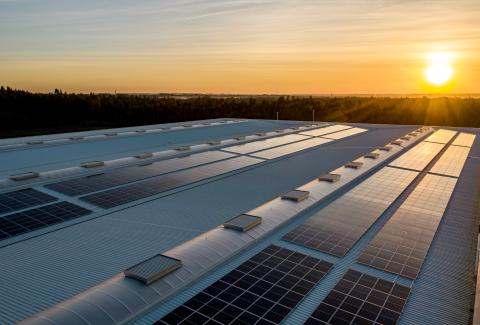LONDON — Europe’s three leading economies are taking three radically different approaches to nuclear power, reflecting contrasting national public priorities in a transition from fossil fuels, and showing the scale of government intervention in energy policy.
France, Germany and the U.K. are all global top-20 generators of nuclear power by market share. France is No. 1 worldwide, with nuclear reactors supplying 71% of generation last year, while the U.K. and Germany were 14th and 19th, at 21% and 12% respectively, according to data from the energy company BP.
But the three have significantly different goals for the technology going forward, despite some consensus over critical considerations of cost and carbon emissions.
Nuclear power is very low carbon-emitting. Partly as a result, France has barely half the per capita carbon emissions of Germany, at 4.9 tonnes of carbon dioxide (CO2) per person versus 9.3 tonnes. Britain is in the middle, at 6 tonnes (according to United Nations population and BP’s CO2 data for 2017).
But nuclear is also one of the most expensive sources of new generation. The U.K. government has contracted to buy electricity from the new Hinkley Point C power plant at a rate of £92.50 per megawatt hour (2012 prices) for 35 years. Long-term nuclear waste disposal liabilities will add to this cost, while there is some risk around the numbers: the 3.2-gigawatt (GW) plant will take at least nine years to build—and has already seen cost overruns.
By way of cost comparison, most renewable power is now unsubsidised in the U.K., with the exception of offshore wind, where the latest power purchase contracts auctioned last year settled at £57.50 per MWh (2012 prices) for 15 years. The 2.3 GW wind farms would take five years to build, coming online in 2022/23.
Low-carbon emissions and high new-build costs might be expected to support a strategy to extend the life of existing nuclear power plants as long as possible, while halting new-build programmes.
The high cost alone of new nuclear plants makes the case for cheaper renewable generation.
Existing, fully depreciated nuclear power plants, some built in the 1970s and 1980s in response to the 1974 oil shock, can be repurposed and run for as long as possible as a source of low-carbon, baseload generation to bridge the phaseout of high-carbon coal and lignite. The high costs of new nuclear, however, make the case for building cheaper renewable generation instead, backed up by more flexible technologies than nuclear, including hydro, gas, batteries, other forms of storage, wider interconnection and demand-response.
FRANCE HAS NO FIRM PLANS TO ADD TO AN AGEING NUCLEAR FLEET beyond the construction of an expensive reactor at Flamanville. But it is planning to extend the life of some nuclear power plants to help it meet goals to reduce carbon emissions, while retiring others.
As President Emmanuel Macron said at the end of 2017: “I don’t idolize nuclear energy at all. But I think you have to pick your battle. My priority in France, Europe and internationally is CO2 emissions and global warming. We’ll have to shut some nuclear plants. Maybe we’ll have to modernize others.”
Germany, meanwhile, is retiring its entire nuclear fleet by 2022, including power plants previously slated for closure in the 2030s, in response to the 2011 Fukushima nuclear disaster in Japan and domestic public opposition to nuclear power. Premature retirements may create difficulties for the country’s carbon-emissions targets if it plugs any short-term supply gap with its dirtiest, most carbon-emitting lignite power plants.
The U.K is moving in entirely the opposite direction, planning a 19 GW nuclear new-build programme that would be unprecedented in the western world.
Gerard Wynn is a London-based IEEFA energy finance analyst.
RELATED ITEMS:
IEEFA Update: More Questions on U.K. Nuclear Project
IEEFA Update: The U.S. Nuclear Project Cancellation Announcement Heard ’Round the World














